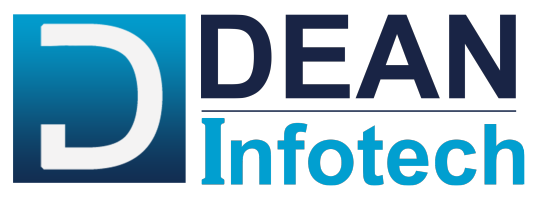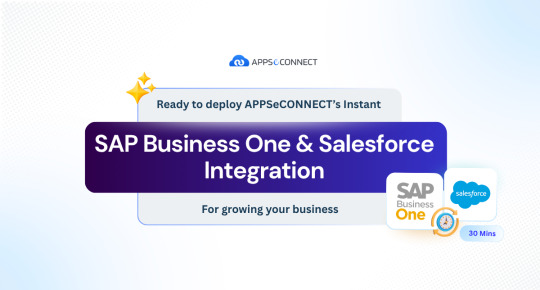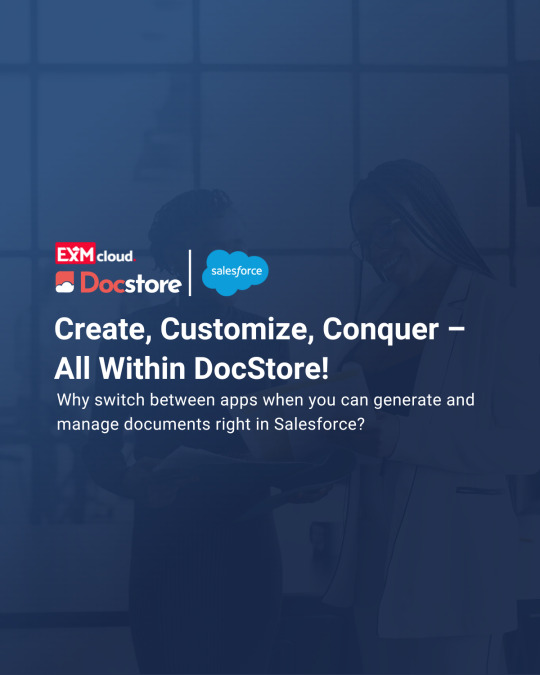#integration with salesforce
Explore tagged Tumblr posts
Photo

The future of document management is here. Discover the trends and how DocStore keeps you at the forefront! 2025 Document Management Trends: 𝗔𝗜 & 𝗔𝘂𝘁𝗼𝗺𝗮𝘁𝗶𝗼𝗻 𝗧𝗮𝗸𝗲 𝗖𝗲𝗻𝘁𝗲𝗿 𝗦𝘁𝗮𝗴𝗲: Automate tasks, organize smarter, and streamline workflows. DocStore brings AI to your document processes. 𝗦𝗲𝗰𝘂𝗿𝗶𝘁𝘆 𝗶𝘀 𝗡𝗼𝗻-𝗡𝗲𝗴𝗼𝘁𝗶𝗮𝗯𝗹𝗲: Protect data with advanced permissions and encryption. Stay secure and compliant with DocStore. 𝗜𝗻𝘁𝗲𝗴𝗿𝗮𝘁𝗶𝗼𝗻 𝗶𝘀 𝗞𝗲𝘆: Connect effortlessly with SharePoint, Google Drive, Azure, and more. DocStore keeps everything in sync within Salesforce.
2 notes
·
View notes
Text
#salesforce development solutions#salesforce marketing cloud developer#salesforce integration services#salesforce managed services#salesforce development services
2 notes
·
View notes
Text
Salesforce’s integration with Google and LinkedIn Ads represents a pivotal moment in the evolution of digital marketing. By seamlessly connecting CRM data with advertising platforms, businesses can create more targeted, personalized, and effective campaigns.
3 notes
·
View notes
Text

Dean Infotech GmbH
Dean Infotech GmbH ist eine in Hamburg ansässige Firma und eine Schwestergesellschaft der Dean Infotech Pvt Ltd. Indien, mit dem Fokus auf die Entwicklung von Software-Lösungen im Bereich Salesforce und Web-Technologien. Unser Ziel ist es, unsere Kunden mit dem besten aus beiden Welten zu begeistern. Zusammen, als hoch motiviertes Team, ist es unsere oberste Priorität, unseren Kunden die richtige Software, verlässlich und mit glänzendem Service anzubieten.
Address- Ballindamm 3, Hamburg, Germany - 20095 Mail- [email protected]
#Salesforce Entwicklungsunternehmen Deutschland#Salesforce Beratungsunternehmen Deutschland#Salesforce Agentur Deutschland#Salesforce Partner Agentur Deutschland#Salesforce Implementierungen Deutschland#Salesforce API Integration Deutschland#Salesforce Daten-Migration Deutschland#Salesforce CRM Deutschland#Salesforce zertifiziertes Beratungsunternehmen#Salesforce zertifizierte Agentur#Salesforce Automatisierung Deutschland#Salesforce App Entwicklung Deutschland#Salesforce Marketing Cloud Entwicklung Deutschland#Salesforce Marketing Cloud Agentur Deutschland
2 notes
·
View notes
Text

Don't let disconnected systems and fragmented data hold your business back – choose Salesforce integration today!
Reach GetOnCRM Solutions today and take the first step towards a more connected, efficient, and profitable future.
2 notes
·
View notes
Text










Exploring Salesforce integration? Discover strategies upping efficiency by 25% and join the 60% of businesses integrating. Need expert guidance? GetOnCRM has your back!
#salesforce#crmintegration#salesforce integration#salesforce solutions#technology#salesforce partner#getoncrm
2 notes
·
View notes
Text

Streamline production, boost revenue, and engage customers like never before. Learn how Salesforce CRM is transforming the manufacturing industry one process at a time.
0 notes
Text
#salesforce integration#Salesforce cloud storage#Salesforce folder management#Salesforce file management#Salesforce external storage integration
0 notes
Text
Ready to Deploy APPSeCONNECT’s Instant SAP Business One & Salesforce Integration for Growing Businesses

According to Gartner: Poor data quality costs organizations at least USD 12.9 million every year on average.
Growing businesses juggle SAP Business One and Salesforce integration, and following best practices ensures smooth data exchange. Without proper integration, ERP CRM data synchronization challenges cause siloed sales orders, misaligned inventories, and wasted hours on manual fixes.
A self-serve integration platform bridges these gaps instantly. Deploying a no-code, pre-built SAP Business One Salesforce integration best practices package cuts setup time to under 30 minutes, unlocks real-time data flow, and lets teams focus on growth instead of backend plumbing.
Explore how no-code integration can streamline your SAP and Salesforce systems.
The Growing Need for ERP and CRM Integration
Companies run SAP Business One for operations and Salesforce for sales insights. Yet without ERP CRM data synchronization challenges, teams juggle spreadsheets and miss updates. A unified link bridges that gap and boosts efficiency.
Understanding SAP Business One and Salesforce Integration
According to Forrester: Integration developers and data architects experienced a 35 % – 45 % productivity boost by using pre-built connectors and visual designers.
Integrating ERP and CRM means syncing orders, customer records, and inventory between SAP and Salesforce. Without it businesses hit bottlenecks—stale data, billing errors, and split workflows. Self-service ERP-CRM connectors transform this process into a no-code experience anyone can manage.
Experience how Advancing Eyecare optimized its ecommerce operations and service support with seamless integration powered by APPSeCONNECT.
No-Code Integration Platforms: Revolutionizing ERP-CRM Sync
Modern teams no longer need custom scripts or middleware. No-code integration platforms let you pick systems, map fields visually, and hit deploy—no developers required. Key benefits include:
The U.S. CRM market size was USD 22.1 billion in 2024 and is projected to reach USD 67.4 billion by 2032 (CAGR 15.1 %).
Pre-Built Connectors & Templates: Offers ready SAP Business One CRM integration blueprints for orders, contacts, and products
Drag-and-Drop Mapping: Empowers non-tech users to link fields, set filters, and schedule sync jobs in minutes
Real-Time & Batch Sync: Handles instant updates for critical data and nightly batches for bulk loads
Error Resilience: Automatically retries failed records, flags issues, and logs every step
Scalability & Elasticity: Grows with your data volume, auto-scaling under load without new hardware
For example, a mid-market distributor can use APPSeCONNECT to sync custom pricing from SAP Business One into Salesforce, cutting manual overrides by 70%.
Key Takeaway: Visual, drag-and-drop mapping lets any user deploy SAP–Salesforce sync in minutes.
The team at APPSeCONNECT was very responsive to my questions and concerns, was always happy to arrange meetings when something needed to be further discussed, and has a can-do attitude. – Matthew Clark, The Mako Group
Interested in real-world tips for ERP CRM data synchronization ? Explore our Webinars
Real-World Use Cases and Success Stories
According to McKinsey: Companies that excel at personalization generate 40 % more revenue than average players.
Businesses across sectors leverage SAP Salesforce integration use cases to drive growth:
Manufacturing: Syncs production orders into CRM, so sales reps can promise accurate delivery dates
Wholesale: Mirrors inventory levels between SAP and Salesforce to avoid oversells and backorders
Services: Pushes service tickets from Salesforce into ERP for warranty tracking and billing
Retail: Updates product catalogs automatically from SAP to e-commerce portals for consistent pricing
Healthcare: Shares patient order data securely between clinical and billing systems for faster claims
Key Takeaway: Manufacturers, retailers, and service firms see up to 70% fewer errors with pre-built SAP-Salesforce workflows.
Discover how a world-leading industrial equipment manufacturing company leveraged APPSeCONNECT for company-wide automation of ERP, CRM, and eCommerce applications.
Start a free trial to see APPSeCONNECT’s self-service integration in action
Best Practices for Implementing SAP Business One and Salesforce Integration
According to McKinsey: Two-thirds of millennials expect real-time customer service, and three-quarters of all customers want consistent cross-channel experiences.
Follow these SAP Business One Salesforce integration best practices to ensure smooth rollout:
Define Clear Data Flows: Map out which fields—like customer ID, order status, or payment terms—must sync and in what direction.
Start Small with Pilot Syncs: Test key processes (e.g., quote-to-cash in Salesforce ERP automation) before broad rollout.
Use Field-Level Filters: Sync only relevant records—such as active accounts—to reduce payload and speed jobs.
Monitor with Dashboards: Track sync health and error rates in real time to catch issues early.
Plan for Data Governance: Establish roles and permissions so only approved users can change mappings or schedules.
Key Takeaway: Defining clear data flows and running pilot syncs ensures a smooth, low-risk rollout.
Showcase managed to sync their inventory seamlessly with the help of APPSeCONNECT and provide the best-in-class products to 100+ stores across North America.
Listen to our Podcats for integration tips and industry insights
The Future of ERP and CRM Integration
The next wave of application integration tools will embed AI for predictive mapping and anomaly detection. Real-time data flow SAP Salesforce will tap machine learning to auto-resolve conflicts. Cloud adoption will push more integrations toward hybrid iPaaS models that combine edge-agent processing with centralized control.
Engage with the Integration Community
Integration thrives on shared knowledge. Tell us about your SAP Business One and Salesforce sync wins or hurdles—your story could guide others.
Salesforce Trailblazer Community: Post questions or tips in the “Integration & API” group to get expert feedback
SAP Community Network (SCN): Share how you tackled data sync in the “SAP Business One” forums and learn from peer blogs
r/integration on Reddit: Discuss real-world challenges and discover scripts or no-code patterns fellow engineers swear by
LinkedIn Integration Groups: Join “iPaaS & Integration Strategies” to swap best practices and case studies with IT leaders
Medium Publications: Follow tags like “Enterprise Integration” and “iPaaS” for deep dives and tutorials from seasoned practitioners
Your insights fuel the community’s growth. Jump into these forums, ask your burning questions, and pass on what you’ve .
Automation runs seamlessly in the background, requiring no daily intervention. Orders sync from WooCommerce to our system, while product details update effortlessly. – Dan Adler, Fulis Paperware
Explore APPSeCONNECT’s courses to get top-notch content & tips
Conclusion
SAP Business One Salesforce integration best practices demand flexibility, speed, and low maintenance. A self-service, no-code iPaaS like APPSeCONNECT meets these needs by delivering real-time, bi-directional sync, pre-built templates, and enterprise-grade security—all without developers. Businesses can eliminate manual errors, boost efficiency, and scale their ERP-CRM workflows in under 30 minutes.
FAQ
What are some issues integrating SAP Business One and Salesforce? Data silos, custom mappings, and manual upkeep often slow down sync projects.
How no-code tools simplify SAP Salesforce integration? They replace scripts with visual mapping, pre-built templates, and instant deployment.
Can you combine a canonical model with iPaaS? Yes—iPaaS can enforce a shared schema while providing flexible connectors.
Which scales better: hybrid integration or pure canonical? Hybrid iPaaS offers elastic scaling and mixed real-time/batch flows for modern needs.
How does microservices integration fit into iPaaS? You can embed services as nodes in ProcessFlow for custom logic without external code.
What is the hub-and-spoke model’s role today? It centralizes governance but may add latency; iPaaS reduces that with edge agents.
How do you measure integration scalability? Monitor throughput (transactions/sec), error rates, and resource usage under peak loads.
Why choose APPSeCONNECT for enterprise integration? Its low-code ProcessFlow Designer, pre-built templates, and enterprise-grade security meet every growth stage.
0 notes
Photo

One platform, endless possibilities. Generate, customize, and manage your documents seamlessly with DocStore!
2 notes
·
View notes
Text
#Salesforce consulting#Salesforce development#CRM solutions#Salesforce integration#Salesforce customization#Websar Salesforce services
0 notes
Text
Salesforce Integration: Comparing Solutions for Startups and Enterprises

Understand how Salesforce integration varies for startups and enterprises. This guide breaks down the differences in strategy, cost, scalability, and implementation based on business size and growth stage. Discover which integration approach fits your needs—whether you're just starting out or managing complex enterprise systems. Ideal for teams looking to maximize CRM performance with the right integration path.
#Salesforce integration#Salesforce Integration Services#Salesforce for startups#Salesforce for enterprises
0 notes
Text
#salesforce integration consultants#salesforce integration#salesforce integration company#salesforce integration partners#salesforce integration service
0 notes
Text
Integrating Salesforce? Watch out for these 7 common pitfalls and learn how to avoid them! Inadequate planning, data management challenges, poor user adoption, and more. Discover the best strategies to overcome these obstacles and achieve a seamless Salesforce integration with GetOnCRM expertise.
#salesforce integration#salesforce#crmintegration#crm solution#businessimpact#data integration#data management#salesforce partner#technology#getoncrm
3 notes
·
View notes
Text
Shrink customer support costs, not the quality, with Salesforce Service Cloud! Dive into our latest blog to learn how. Your solution to better customer service is just a click away.
#salesforce#crm integration#crmconsulting#customerservice#salesforce service cloud#service cloud#getoncrm#salesforce partner
2 notes
·
View notes
Text
How Salesforce CRM Integration Can Accelerate Your Business Growth
In today’s fast-paced digital environment, organizations are increasingly turning to cloud-based Customer Relationship Management (CRM) solutions to improve operational efficiency and customer engagement. Salesforce, the world’s leading CRM platform, empowers businesses to streamline processes, enhance productivity, and make data-driven decisions. However, leveraging the full potential of Salesforce requires more than just basic setup—it demands deep customization, seamless integration, and strategic implementation. That’s where CloudFountain, a trusted Salesforce Development Company, steps in.

Why Salesforce CRM Integration Matters
Salesforce CRM Integration enables businesses to unify their customer data across multiple platforms, including marketing, sales, support, finance, and operations. Instead of operating in silos, departments can collaborate more effectively with a 360-degree view of the customer journey. This integration minimizes manual data entry, reduces errors, and boosts productivity by automating routine tasks.
For instance, integrating Salesforce with marketing automation tools like HubSpot or Mailchimp allows businesses to run targeted campaigns based on real-time sales data. Similarly, connecting Salesforce with ERP systems such as SAP or Oracle ensures financial transactions and order management are always in sync.
At CloudFountain, we specialize in delivering tailor-made Salesforce Integration Solutions that empower businesses to create a unified tech ecosystem. Our approach ensures minimal disruption to daily operations while maximizing long-term value.
Sales Cloud Implementation: Turning Leads into Loyal Customers
The Sales Cloud is a powerful Salesforce product designed to manage leads, opportunities, accounts, and customer contacts all in one place. With advanced AI capabilities, customizable dashboards, and mobile accessibility, Sales Cloud enables sales teams to close deals faster and more efficiently.
Sales Cloud Implementation involves configuring the platform to align with a business’s unique sales processes. This can include:
Setting up lead scoring and routing
Automating approval processes
Customizing pipelines and forecasting tools
Creating tailored dashboards and reports
At CloudFountain, we provide comprehensive Sales Cloud implementation services that help organizations boost lead conversion rates, improve team productivity, and enhance customer satisfaction. Our certified consultants work closely with stakeholders to ensure the implementation delivers measurable results.
Partnering with a Salesforce Development Company You Can Trust
Every business is different, and off-the-shelf CRM solutions often fall short in addressing industry-specific requirements. That’s why businesses turn to a reliable Salesforce Development Company like CloudFountain for custom solutions.
Our development team is experienced in building custom Salesforce applications that extend the platform's core functionality. Whether it’s a customer portal, partner management tool, or complex workflow automation, our Salesforce-certified developers bring your vision to life while ensuring high performance and scalability.
In addition, we follow Salesforce best practices and Agile methodologies to ensure on-time delivery and smooth user adoption. With a strong focus on innovation and user experience, we help our clients future-proof their CRM investments.
Scalable and Smart Salesforce App Development
Custom apps built on the Salesforce platform provide businesses with the flexibility to innovate and grow without limitations. As a leading provider of Salesforce App Development, CloudFountain specializes in designing, developing, and deploying scalable Salesforce apps that solve real-world problems.
Our app development services include:
Custom Lightning Web Components (LWC)
Visualforce page development
Apex triggers and batch classes
AppExchange app development and security review
Integration with third-party APIs
Whether you need a standalone Salesforce app or a component that enhances existing functionality, our team ensures a seamless user experience backed by robust performance.
Choosing the Right Salesforce Integration Consultant
Integration is not just about connecting systems—it’s about ensuring that those systems work together intelligently to drive business outcomes. That’s where the role of a Salesforce Integration Consultant becomes crucial.
At CloudFountain, our integration consultants take a strategic approach to integration. We begin by understanding your business objectives and existing technology stack. Then we design and implement a solution that bridges the gap between Salesforce and other mission-critical applications—whether cloud-based or on-premises.
Our consultants are well-versed in MuleSoft, REST/SOAP APIs, middleware platforms, and ETL tools. As your Salesforce Integration Consultant, we ensure seamless data flow, enhanced system performance, and improved customer engagement.
Why CloudFountain is the Preferred Salesforce Integration Company
What sets CloudFountain apart as a top-tier Salesforce Integration Company is our ability to deliver end-to-end Salesforce solutions that align with your strategic goals. From initial consulting and development to ongoing support and training, we help businesses harness the full power of Salesforce.
Our key differentiators include:
A team of certified Salesforce developers, consultants, and architects
Deep expertise across industries like finance, healthcare, manufacturing, and retail
Proven track record of successful implementations and integrations
Flexible engagement models tailored to your budget and timeline
By choosing CloudFountain, you’re not just investing in a service provider—you’re partnering with a team dedicated to your long-term success.
Conclusion
In an increasingly competitive marketplace, having a well-integrated, intelligent CRM system is no longer optional—it’s a necessity. CloudFountain’s expertise in Salesforce CRM Integration, Sales Cloud Implementation, and Salesforce App Development helps businesses unlock the full potential of Salesforce. Whether you’re just getting started with CRM or looking to optimize an existing setup, our team is ready to guide you every step of the way.
Ready to transform your Salesforce experience? Contact CloudFountain today for a free consultation.
#Salesforce CRM Integration#Sales Cloud Implementation#Salesforce Development Company#Salesforce App Development#Salesforce Integration Consultant#Salesforce Integration Solution#Salesforce Integration Company#cloudfountain
0 notes